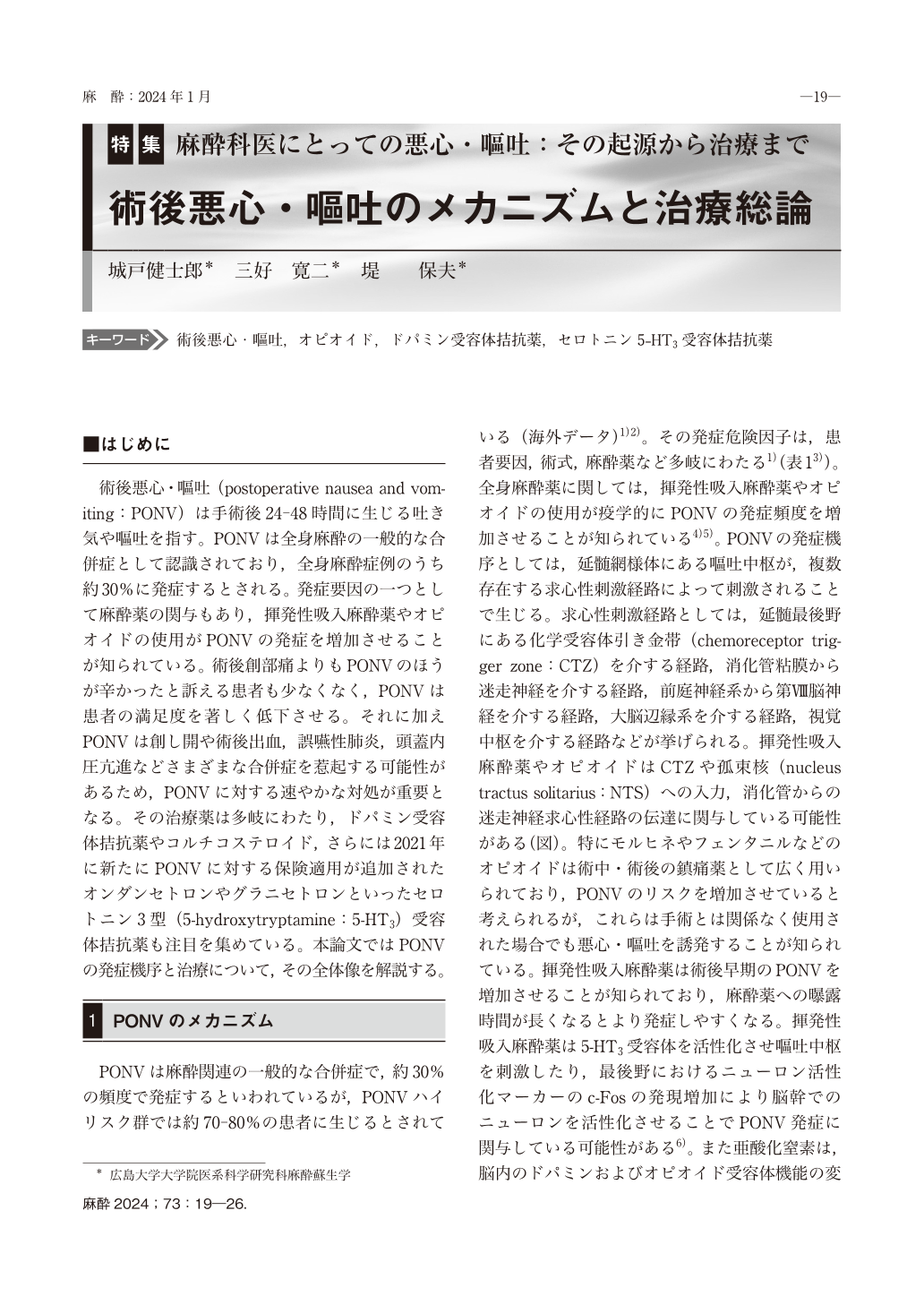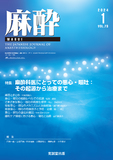Japanese
English
- 有料閲覧
- Abstract 文献概要
- 1ページ目 Look Inside
- 参考文献 Reference
はじめに
術後悪心・嘔吐(postoperative nausea and vomiting:PONV)は手術後24-48時間に生じる吐き気や嘔吐を指す。PONVは全身麻酔の一般的な合併症として認識されており,全身麻酔症例のうち約30%に発症するとされる。発症要因の一つとして麻酔薬の関与もあり,揮発性吸入麻酔薬やオピオイドの使用がPONVの発症を増加させることが知られている。術後創部痛よりもPONVのほうが辛かったと訴える患者も少なくなく,PONVは患者の満足度を著しく低下させる。それに加えPONVは創し開や術後出血,誤嚥性肺炎,頭蓋内圧亢進などさまざまな合併症を惹起する可能性があるため,PONVに対する速やかな対処が重要となる。その治療薬は多岐にわたり,ドパミン受容体拮抗薬やコルチコステロイド,さらには2021年に新たにPONVに対する保険適用が追加されたオンダンセトロンやグラニセトロンといったセロトニン3型(5-hydroxytryptamine:5-HT3)受容体拮抗薬も注目を集めている。本論文ではPONVの発症機序と治療について,その全体像を解説する。
Postoperative nausea and vomiting(PONV)is a common complication of anesthesia that occurs in approx. 30% of patients undergoing surgery under general anesthesia. Volatile anesthetics and opioids are associated with PONV. PONV not only leads to patients’ dissatisfaction;it is also related to complications such as wound dehiscence, postoperative bleeding, aspiration pneumonia, and increased intracranial pressure, among others. PONV must therefore be dealt with promptly and appropriately. Many medications have been used for PONV, including dopamine receptor antagonists, corticosteroids, and serotonin receptor antagonists. Since the onset of PONV is associated with several physiological pathways, it is thus important to consider different types of medications for treating PONV. Above all, the possibility of opioid overdose, intestinal obstruction, and any other factors that can cause PONV must be considered and avoided.

Copyright © 2024 KOKUSEIDO CO., LTD. All Rights Reserved.


